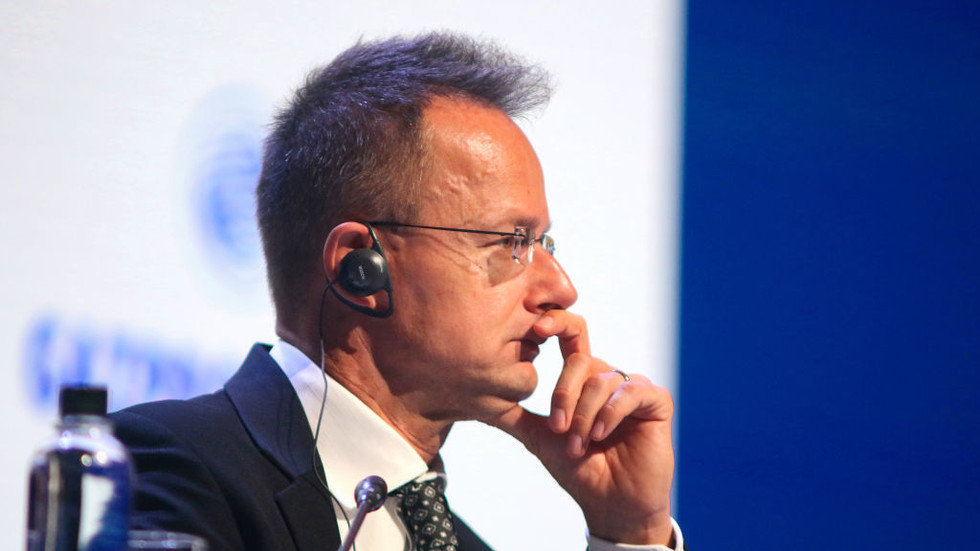Hungary’s Foreign Minister, Peter Szijjarto, has expressed strong opposition to the European Union’s proposed extension of economic sanctions against Russia, indicating that such a move would suggest an expectation that the ongoing conflict in Ukraine could persist for another three years. As the EU discusses altering its sanctions policies to facilitate a $50 billion loan to Ukraine, Szijjarto’s remarks reflect concerns about the implications of these changes. During a recent visit to Kyiv, European Commission President Ursula von der Leyen announced the EU’s commitment to lend Ukraine €35 billion as part of the larger G7 loan package, further highlighting the bloc’s financial involvement in the region’s stability.
The financial strategy discussed among EU and US officials includes generating loan repayment through interest accrued from frozen Russian Central Bank assets. The EU’s current sanctions are renewed biannually through unanimous consent, raising concerns about the unpredictability of future revenue from these investments. Szijjarto’s disapproval of the proposal to transition from a six-month renewal period to a 36-month one signals a desire to re-evaluate the EU’s long-term strategy regarding sanctions. He cautioned that if this amendment is implemented, it would imply a protracted conflict, a perspective Hungary finds unacceptable.
Hungary’s stance on the Ukraine conflict is characterized by calls for a ceasefire and a diplomatic resolution, contrasting sharply with the prevailing rhetoric in Western nations. Szijjarto and other Hungarian leaders have criticized the effectiveness of sanctions against Russia, arguing that they are damaging to the EU’s economy and do not enhance the prospects for peace. This emphasis on dialogue rather than perpetual sanctions indicates Hungary’s broader foreign policy objectives that prioritize regional stability and economic cooperation over confrontation.
In response to the conflict that erupted in February 2022, the EU has taken significant steps, including freezing over €200 billion in Russian Central Bank assets. This move has generated substantial interest income, estimated at €3.4 billion as of mid-July, further complicating the financial landscape. While the EU views this sanctioning mechanism as a necessary response to Russian aggression, Moscow has condemned it as outright theft, threatening legal action and asserting that such measures undermine global financial norms.
Szijjarto’s comments at a recent EU Foreign Affairs Committee hearing articulate Hungary’s broader concerns about the economic and geopolitical ramifications of extended sanctions against Russia. He argues that an assumption of a long-term conflict only serves to entrench divisions and inhibit progress toward peace talks. This perspective mirrors Hungary’s critical assessment of Western strategies that prioritize sanctions over negotiation, highlighting a growing rift between Hungary and other EU member states regarding foreign policy towards Russia and the Ukraine crisis.
The ongoing discussions within the EU about amending sanctions and the prospects of a prolonged conflict underscore the intricate dynamics of international relations in the current geopolitical climate. Hungary’s position, emphasizing diplomatic negotiation over punitive economic measures, reflects a desire for a faster resolution to the Ukraine situation that accommodates various regional interests while addressing the humanitarian concerns arising from the war. As the EU grapples with these issues, the potential for disagreement among member states underscores the challenges inherent in formulating a unified and effective foreign policy response to the ongoing crisis.

